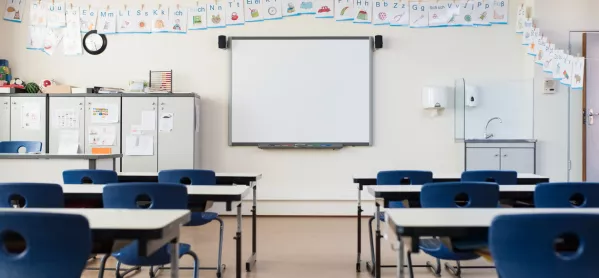It is September. I have not been near a classroom in almost six weeks and now I am standing by the whiteboard in front of 30 children, to whom I am expected to deliver a lesson.
My fears at this time of year are unchanging: I can’t teach and never could. The summer holidays have proved that the only activities I am suited to are sleeping in and afternoon drinking. I also know for certain that every other teacher in the school is currently teaching an inspirational, award-winning lesson that has their students learning at five times the rate of mine.
But I have to get back in the saddle, so I need a plan to get me through the first lesson. Mine goes something like this:
Grab their attention
You don’t have to set off fireworks or parachute on to your desk in a cloud of glitter. The students will only spend the rest of the year waiting for you to do it again. Instead, tell them a story: the power of narrative to hold children’s attention never fails.
Ask them to tell you about themselves
Getting to know your students makes teaching them a lot easier. How you do this will depend on their age. Over the years I have asked them to write a postcard from their summer holiday, create a passport allowing them entry to their new class and write a poem about themselves revealing their fears, hopes, likes and dislikes. Share something about yourself, too - children respond to teachers who reveal a bit of personality.
Be a pedant
It is always worth going over the top about grammar and presentation. Move around the classroom picking up on every misplaced comma, missing apostrophe and incorrectly formed letter. Bestow praise liberally and publicly on good examples.
Expect them to behave
Treat all the children as if they are perfect, and express shock and disappointment if anyone steps out of line. This shows that you have high expectations, and they all get a fresh start. It beats beginning by saying, “Mrs Smith warned me about you.”
Keep it pacy
Activities should be fast and lively. Include a mix of teacher and student talk, ask questions of children who do not put their hands up and do lots of mini plenaries.
Tolerate the pens
Never underestimate the importance of new stationery to under- 11s. For many children, the success of their first day back rests on being allowed to use their shiny new gel pens. Ban them on Day 1 and they will be too busy seething to concentrate. Holding their own belongings also helps to calm nervous children.
End on a high
Read out some finished work, praise students’ efforts and finish with another quick story or a word game. Put the work on the wall; you can use it as a benchmark in future lessons.
And finally...
Don’t be lulled into a false sense of security. This is the one lesson of the year where you are pretty much guaranteed good behaviour, but the novelty wears off quickly. Don’t promise anything you won’t be able to sustain all year - July is a long way off.
Jo Brighouse is a primary school teacher in the Midlands of England.




